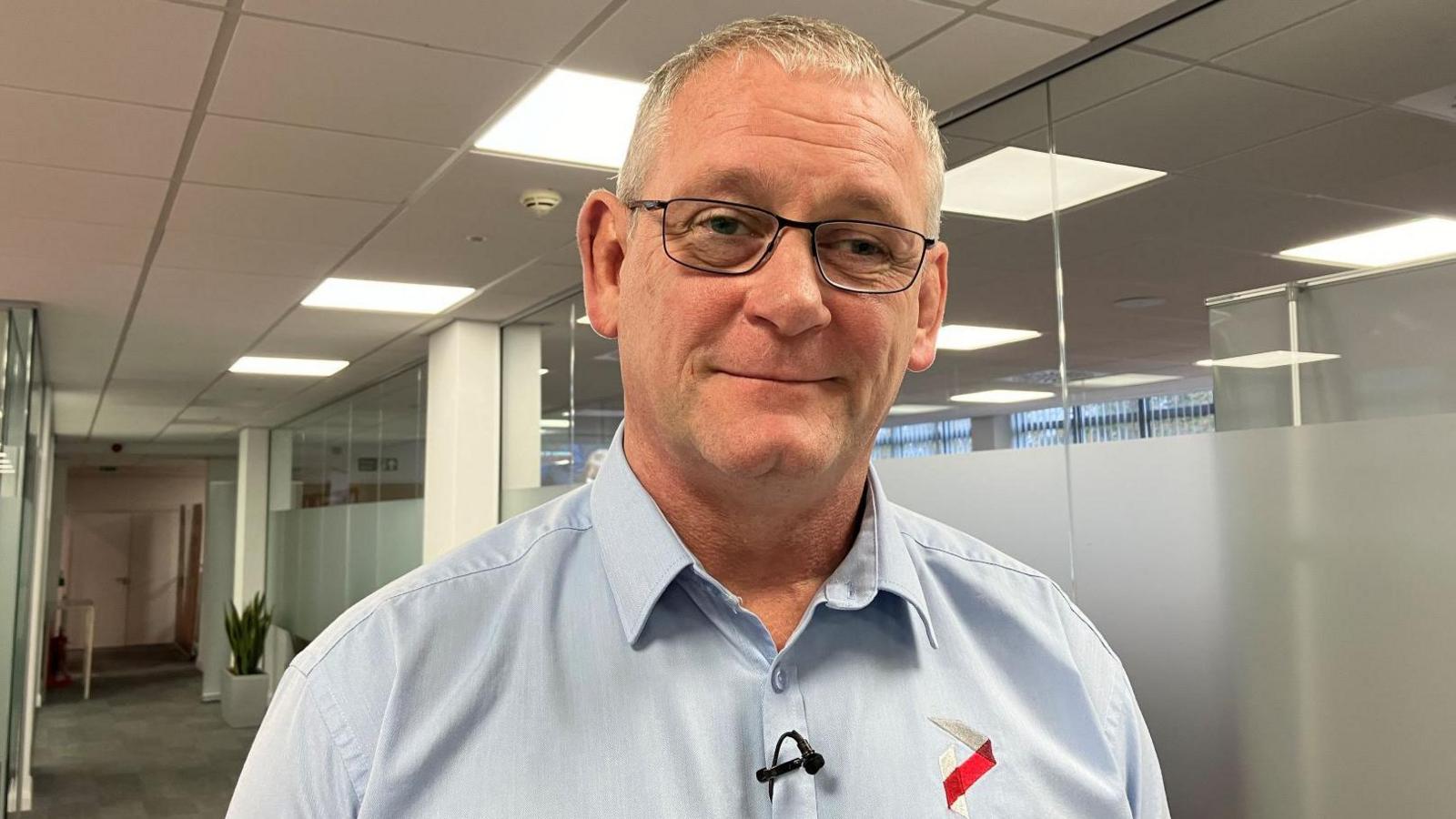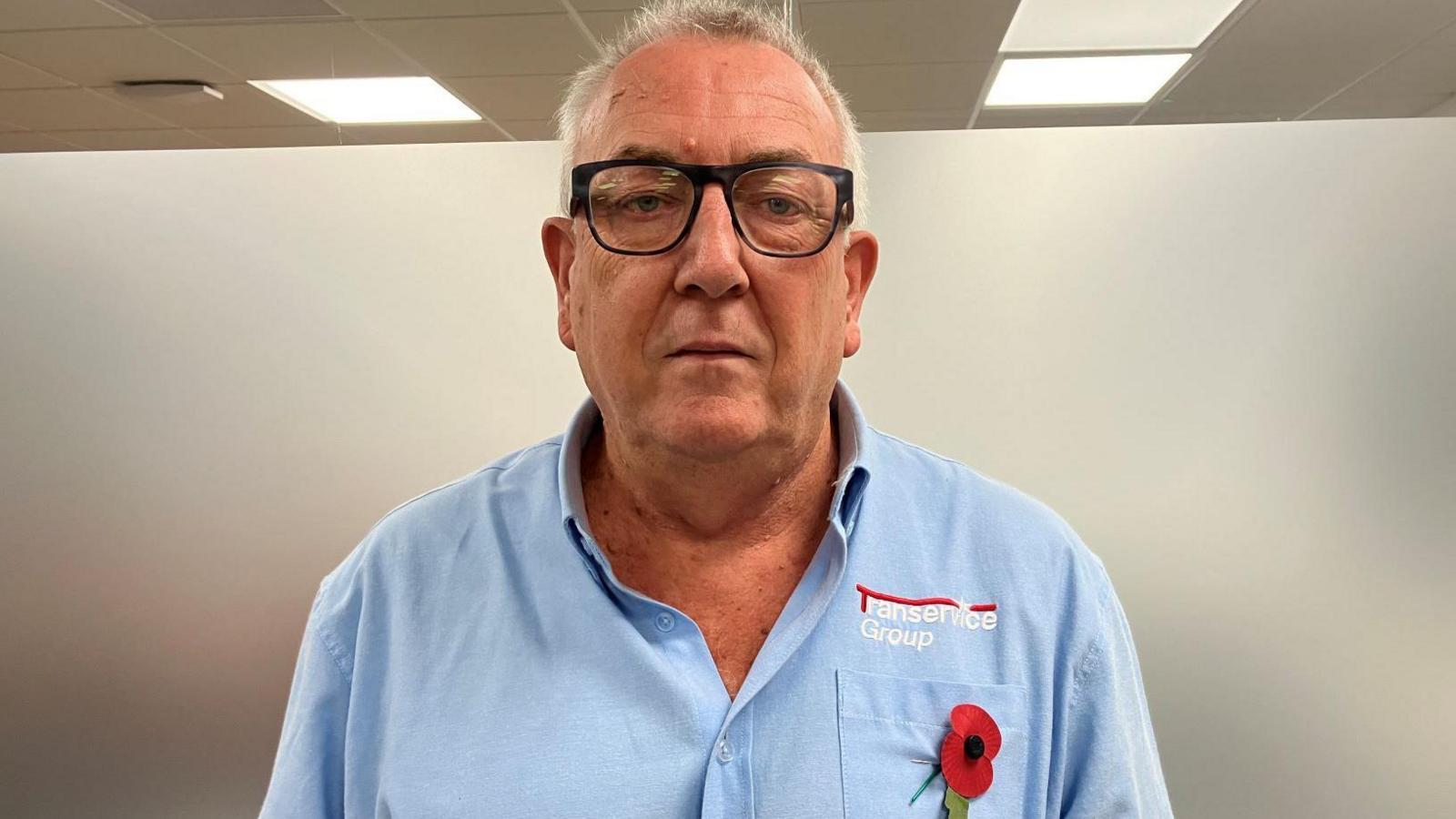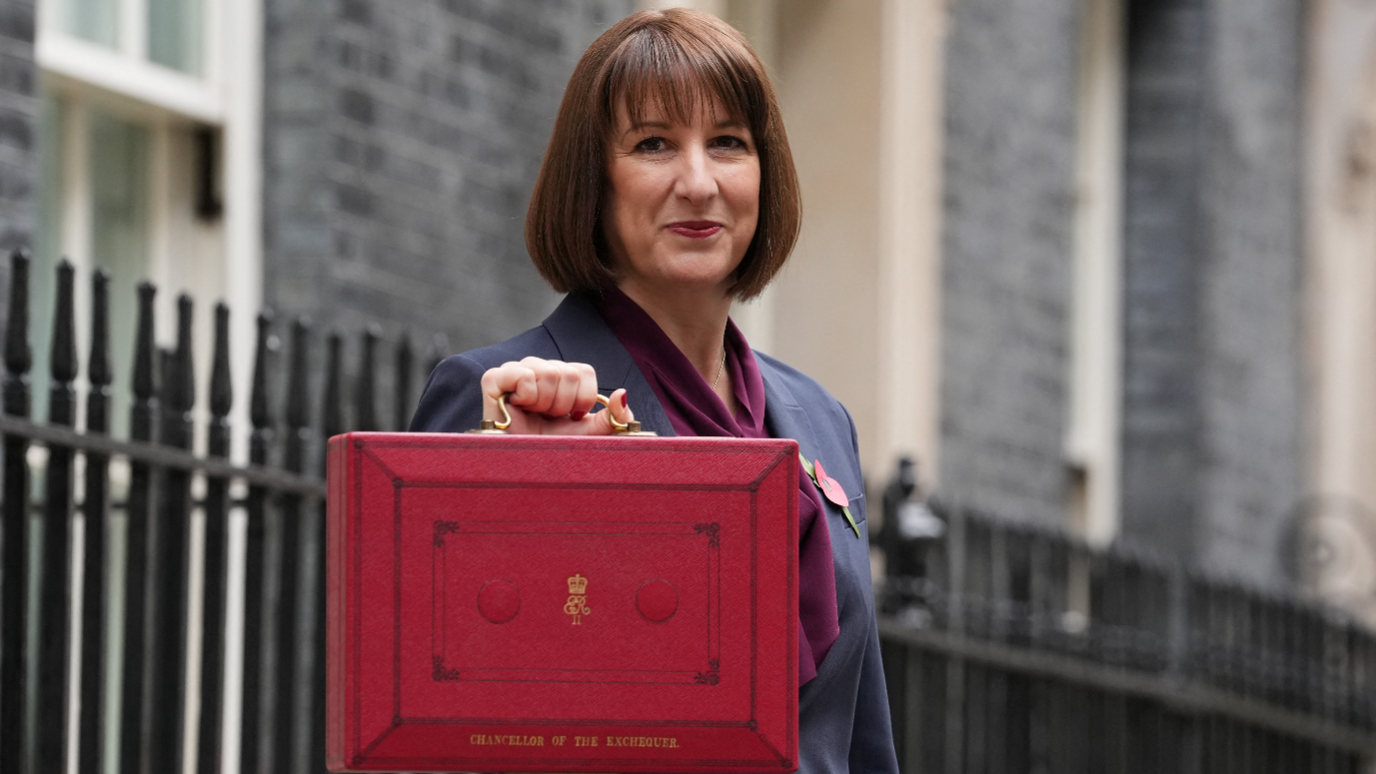'I'll have to raise prices' after Budget NI hike

Philip Stanley, of TWP Manufacturing Group, said he would have to increase prices for customers
- Published
A manufacturing boss said he would have "no choice" but to put up prices, after extra levies for businesses were announced in the Autumn Budget.
Chancellor Rachel Reeves delivered Labour’s first Budget since 2010 on Wednesday and announced tax rises worth £40bn - more than half of which will be paid for by businesses.
Employers will have to pay more in National Insurance (NI) contributions, in changes that are set to generate £25bn.
"It just means I’ve got to put prices up, I have nowhere to go," said Philip Stanley, the managing director of TWP Manufacturing Group based in Tipton.
"We don’t have a lot of cream on the cake as it is at the moment, and we have to pass that on to our customers."
'Already suffering'
TWP Manufacturing Group makes metal parts for businesses in sectors such as automotive, construction, and white goods.
Mr Stanley said the company was "already suffering" due to the rising cost of raw materials, even before the increased NI levy announced on Wednesday.
Companies will pay NI at a rate of 15% on salaries above £5,000 from April, up from 13.8% on salaries above £9,100.
Smaller businesses have been offered some exemptions, but businesses overall also face having to pay higher minimum wages and higher business rates.

Paul Johnson, MD of Transervice Express Transport Ltd, in West Bromwich
"I think she hasn't really done a lot to help at all," Paul Johnson, the managing director of Transervice Express Transport Ltd, said of the chancellor's Budget.
Mr Johnson’s company, which is based in West Bromwich, provides services such as haulage and warehousing.
He said many road haulage businesses were "barely hanging on" and "these sorts of extra employment costs could well push a lot of companies over the edge".
However, he added that Reeves's decision to continue the freeze on fuel duty was "a great win" as he had expected it to go up.
Former Wolverhampton MP and current Treasury minister Emma Reynolds said more than half of employers across the country would not be negatively affected by the changes to NI.
She added that the smallest businesses would be taken out of NI altogether because of an increase in employment allowance.
Reynolds said increasing NI contributions for other businesses was a "difficult decision" but a necessary one to restore economic stability and allow the government to "rebuild public services".
Budget analysis
By Rob Mayor, West Midlands Political Editor
As expected there was the promise of more powers for Metro Mayors, which effectively means more money for Labour's Richard Parker in the West Midlands, or at least more freedom on how to spend it.
The idea is he'll be able to allocate cash to achieve a broad set of goals, much like a cabinet minister.
Elsewhere there was a promise to fund HS2 all the way into London Euston from Birmingham, part of the scheme that was cancelled under the last government.
But there was no announcement on money to look at the feasibility of building a new slower line to the north.
Local councils of all political colours, many of whose leaders say they are facing financial oblivion, will be relived at confirmation that they will get multi-year funding settlements, making their financial planning easier.
But they will have to wait to hear how much money they’ll actually get.
Get in touch
Tell us which stories we should cover in Birmingham and the Black Country
Follow BBC Birmingham on BBC Sounds, Facebook, external, X, external and Instagram, external.
Related topics
- Published30 October 2024

- Published30 October 2024

- Published30 October 2024
